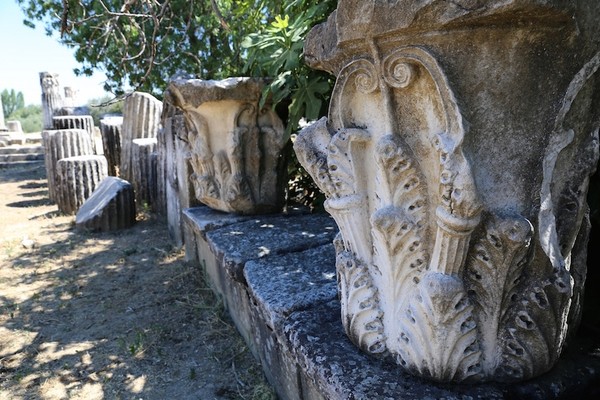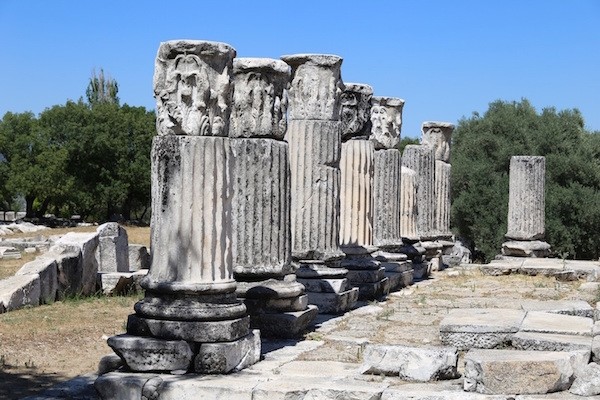© Turkuvaz Haberleşme ve Yayıncılık 2026
Archaeologist are set to resume excavations after a six-year hiatus in the 3,000-year-old site of Lagina, the sacred precinct of the Goddess Hekate.
Ottoman scientists first became interested in the site, located in the town of Turgut in southwestern Turkey's Muğla province, during the 19th century.
Modern excavation and restoration work began1993 under the guidance of the Muğla Museum and with an international team advised by Professor Ahmet Tırpan from Pamukkale University.

The fresh excavations of Lagina will be lead by Dr. Bilal Söğüt, after Dr. Tırpan's team ended work at the site in 2011.
Söğüt explained that Lagina was the religious center of the ancient city of Stratonicea, located about 11 kilometers (6.8 miles) away, and that excavations of the two sites would be carried out together starting in August.
Lagina holds significance for being home to the sanctuary of Hekate, the Greek goddess of witchcraft, magic and ghosts, Söğüt told Anadolu Agency.
In addition to the archaeological excavation work at the site, sketches are set to be drawn up of prospective infrastructure, conservation and restoration works in Lagina.

